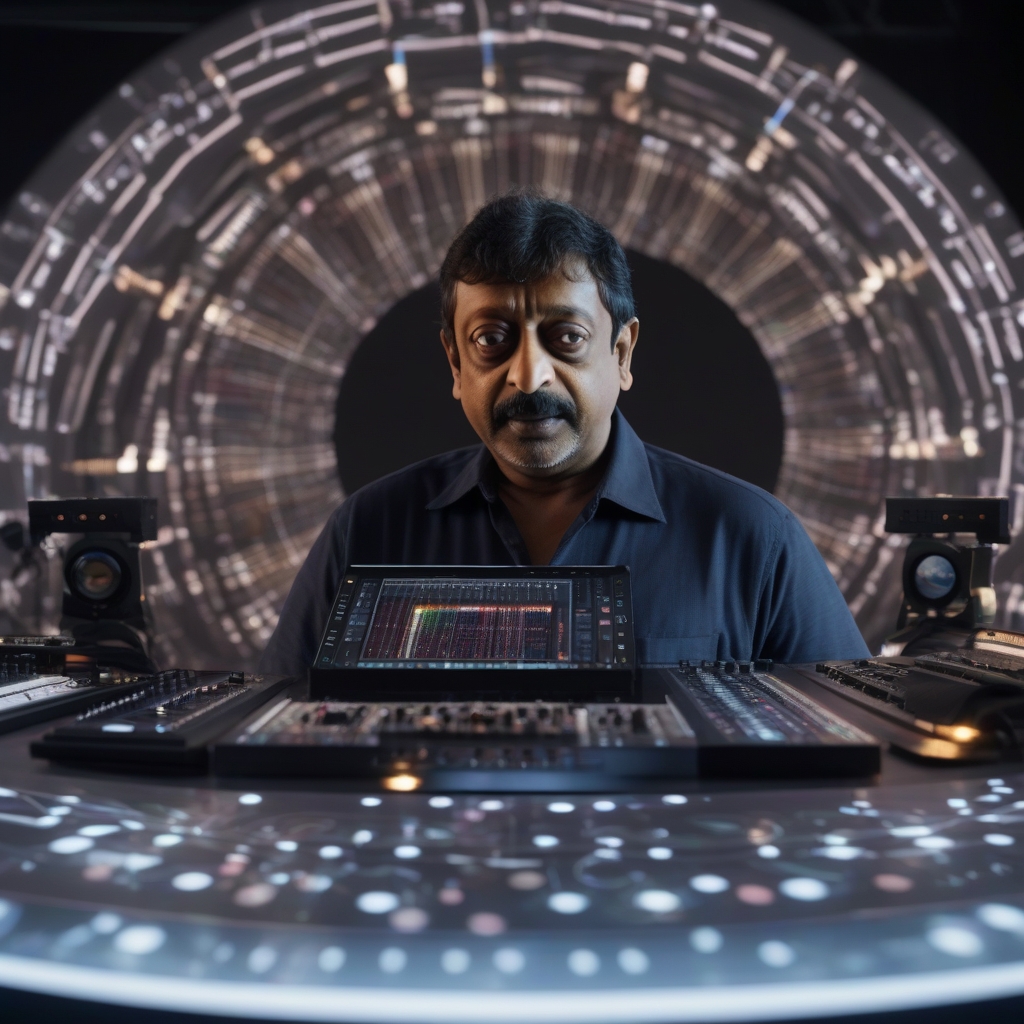In a groundbreaking move that is bound to stir debate and reshape the creative landscape, renowned Indian filmmaker Ram Gopal Varma has declared his intention to abandon human musicians in favor of AI-generated music for his future projects. Announced during a recent press conference, this decision underscores a significant shift in the entertainment industry, emphasizing the growing influence of artificial intelligence in creative processes.
Ram Gopal Varma’s Bold Decision
Ram Gopal Varma is no stranger to controversy or innovation. Known for his pioneering work in Indian cinema, Varma has consistently pushed the boundaries of storytelling and filmmaking. However, his latest announcement may be his most audacious yet. By choosing to forego traditional human musicians, Varma is embracing a technological frontier that promises new creative possibilities.
“AI music allows for an unprecedented level of experimentation,” Varma stated. “It frees us from the constraints of human limitations and opens up a world of unlimited potential. The precision and variety offered by AI can help us achieve an artistic vision that was previously unimaginable.”
What is AI-Generated Music?
Artificial intelligence has been making strides in various sectors, and the music industry is no exception. AI-generated music utilizes algorithms and machine learning to create compositions that can range from simple melodies to complex orchestral pieces. These algorithms analyze vast amounts of musical data, learning patterns and structures to produce music that can mimic human compositions or explore entirely new sonic territories.
Key advantages of AI-generated music include:
- Consistency: AI can maintain a consistent style or theme across a project without fatigue.
- Speed: Rapid composition and revision capabilities, drastically reducing production timelines.
- Innovation: The ability to explore unconventional and experimental soundscapes.
How AI Music Works
The process involves intricate algorithms that are trained on vast datasets of existing music. These algorithms can generate new compositions by understanding key elements such as harmony, rhythm, and melody. The AI tools can also be programmed to cater to specific genres, moods, and even instrumental preferences.
Implications for Human Musicians
While the move towards AI-generated music has excited technophiles and forward-thinking artists, it also raises concerns about the future of human musicians. The most obvious concern is the potential loss of jobs. Musicians, composers, and other professionals in the music industry may find themselves competing against increasingly sophisticated AI counterparts.
However, some argue that AI could serve as a tool rather than a replacement. It could complement human creativity, providing new avenues for artistic expression. AI-generated music can be seen as an additional instrument in the creative toolkit, one that human composers can use to augment their work rather than supplant it.
Impact on the Film Industry
The decision by Ram Gopal Varma to integrate AI-generated music into his films could set a precedent in the Indian film industry and beyond. As a trailblazer, Varma’s acceptance of AI technology may encourage other filmmakers to explore the potential of AI in their own projects. This could lead to a wave of innovation in film scoring, soundtrack production, and even sound design.
Moreover, Varma’s move might also influence the industry’s approach to budget and production timelines. The efficiency of AI can potentially reduce costs and accelerate the production process, making high-quality music accessible to a broader range of filmmakers.
Ethical and Artistic Considerations
The integration of AI into the realm of music and film brings with it a host of ethical and artistic considerations. Critics argue that AI lacks the emotional depth and human experience that imbue traditional music with its soul. The question arises: Can AI-generated music truly replicate the emotive power of a composition crafted by a human being?
On the ethical front, the use of AI in creative fields prompts a re-evaluation of intellectual property rights. Who owns the music created by an algorithm? Is it the developer of the software, the operator using it, or some combination thereof? As AI continues to evolve, these questions will become increasingly relevant and complex.
Varma’s Vision
Despite the concerns, Ram Gopal Varma remains optimistic. “The essence of art is its ability to evolve,” he said. “AI is just another evolutionary step. It is the artist’s job to harness these tools to create something truly meaningful.”
Varma envisions a future where AI-generated music is not seen as a rival to human artistry but as an enhancer. He believes that AI has the potential to unlock new dimensions in music composition, offering textures and complexities that were previously unattainable. In this vision, human and AI collaboration could lead to a renaissance in artistic expression.
Conclusion
Ram Gopal Varma’s decision to adopt AI-generated music marks a significant shift that could have wide-ranging implications for the film and music industries. While it raises important questions about the future of human musicians and the ethical use of AI, it also opens the door to unprecedented creative possibilities. By embracing this technology, Varma aims to push the boundaries of what is possible in film music, urging others in the industry to reimagine their approach to art and innovation.
As AI continues to evolve, the balance between machine and human artistry will likely become one of the defining debates of our time. Whether this shift will lead to a harmonious blend of human and artificial creativity or spark a contentious divide remains to be seen. What is certain, however, is that the landscape of music and film will never be the same.

Leave a Reply